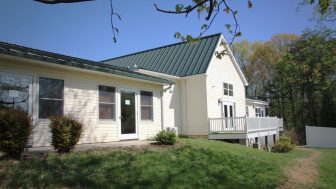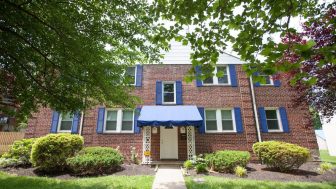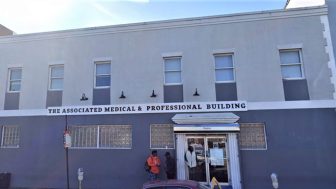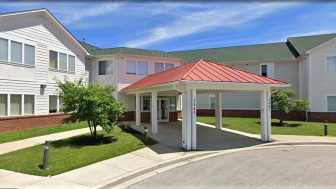MedStar Good Samaritan Hospital
5601 Loch Raven Boulevard Suite 406 Morgan Building
Baltimore, MD 21239

Addiction Treatment Programs
Adult Program
A typical adult program in Maryland offers a private setting for rehabilitation from alcohol or drugs. Treatment often includes group therapy, individual counseling, and family support and may occur in a residential facility or through outpatient care.Cognitive Behavioral Therapy (CBT)
Cognitive behavioral therapists use multiple exercises during cognitive behavioral therapy in Maryland. A combination of imagery-based exposure, behavioral experiments, and thought records can provide effective treatment for addiction and co-occurring disorders.Senior Drug & Alcohol Rehab
Through elderly rehab in Maryland, seniors can find the help they need to overcome addiction. These age-specific rehab programs address substance use disorders, dual diagnosis, and age-related challenges.Teen & Adolescent Program
During crucial developmental years, addiction can cause cognitive impairment, increase risky behavior, and impair social development. A young adult program in Maryland can help individuals learn to make healthy choices and avoid these downfalls of addiction.Levels of Care
Outpatient Rehab
Outpatient rehab in Maryland is best suited for those who are coping well in recovery but need ongoing treatme...nt. This level of rehab offers accountability and support through regular therapy sessions and support group meetings. It may last for weeks or months, based on your ongoing recovery needs.Dual Diagnosis & Mental Health
If you have both a mental health and substance use disorder, these cannot be treated independently. They inter...act, so the treatment must be integrated. Dual diagnosis treatment in Maryland is designed to treat both co-occurring disorders.Insurance
 Medicaid Accepted
Medicaid Accepted
If paying for rehab is a challenge, check your eligibility for Maryland Medicaid Assistance. Your coverage may... vary, but this program can assist with the cost of all levels of care, including detox, inpatient rehab, and more.
 Medicare Accepted
Medicare Accepted
Maryland residents with Medicare may have coverage options available to help with the cost of alcohol and drug... rehab in Maryland. The amount of coverage will depend on many things, including whether you are seeking inpatient or outpatient treatment for substance abuse.
 Private Insurance
Private Insurance
If you have private rehab insurance, you can use your coverage to help pay for alcohol and drug rehab in Maryl...and. The amount covered may vary based on your insurance policy and the network status of the treatment center. Check with your insurer for more information.
 Self-Pay Options
Self-Pay Options
In Maryland, you have the option to take charge of your addiction recovery journey by paying for your treatmen...t through self-pay options, also known as private pay. This option gives you access to all levels of care, from detox to inpatient rehab, and more, all on your terms as you’re not restricted by the limitations of insurers or state-run programs.Contact MedStar Good Samaritan Hospital
5601 Loch Raven Boulevard Suite 406 Morgan Building
Baltimore, MD 21239

Location Details
Other Nearby Facilities

817 South Camp Meade Road
Linthicum Heights, MD 21090

8600 Lasalle Road Suite 212
Towson, MD 21286

2410 Pennsylvania Avenue Suite 200
Baltimore, MD 21217

3643 Woodland Avenue
Baltimore, MD 21215